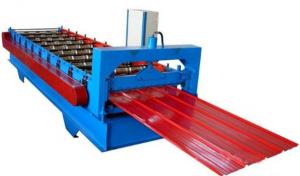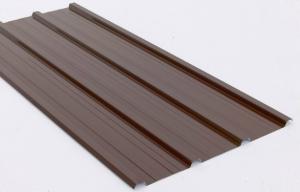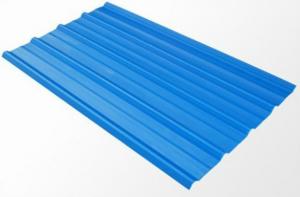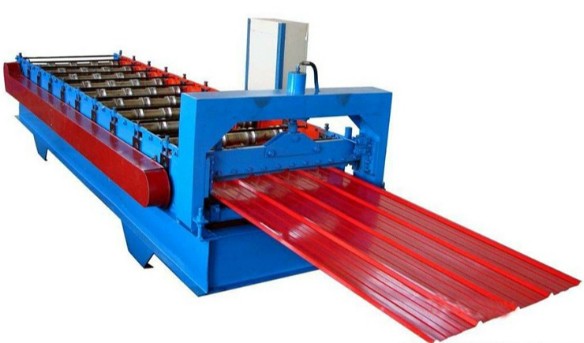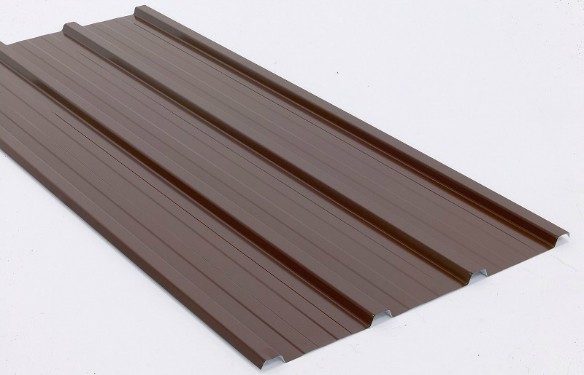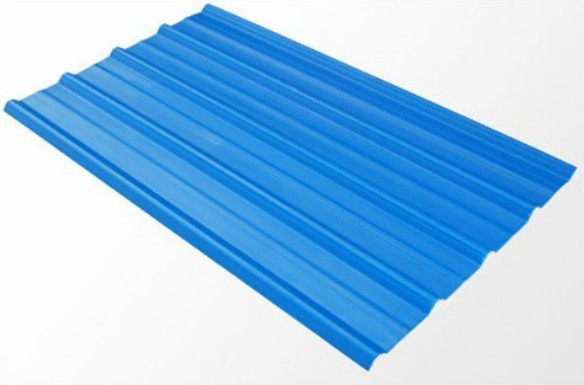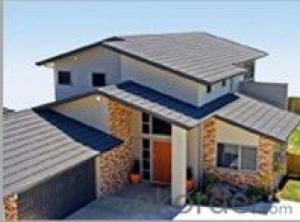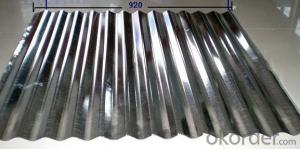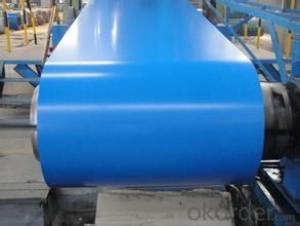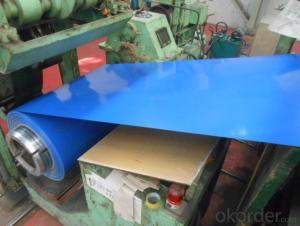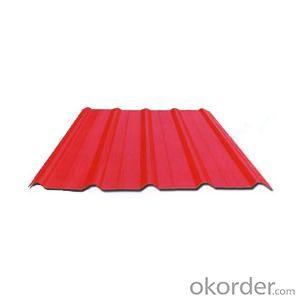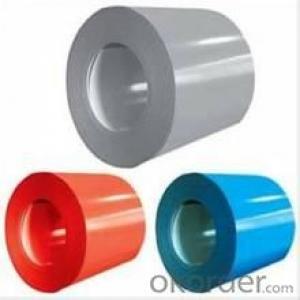Prepainted Galvanised Corrugated Sheet
- Loading Port:
- China Main Port
- Payment Terms:
- TT OR LC
- Min Order Qty:
- -
- Supply Capability:
- -
OKorder Service Pledge
OKorder Financial Service
You Might Also Like
Product Description:
We specialize in manufacturing galvanized steel coil, galvalume steel coil, prepainted steel coil and galvanized corrugated sheets.
Nowadays our company has grown up to a collectivized company . We are grateful to the cooperation partner who`s grown with us all the way. We hope we could make more friends from all over the world. Under the joint efforts of both sides we believe that we will continue to achieve win-win results based on mutual trust and mutual support.
Quick Details
| Standard: | Grade: | Thickness: | |||
| Place of Origin: | Brand Name: | Model Number: | |||
| Type: | Technique: | Surface Treatment: | |||
| Application: | Special Use: | Width: | |||
| Length: | Based Material: | Material: | |||
| Zinc Coated: | Spangle: | Shape: | |||
| Galvanized Type: | Business: | Payment Terms: | |||
| Packaging: | Delivery Detail: |
Packaging & Delivery
| Packaging Detail: | Fully seaworthy export packing with paper tube Each coil is wrapped in water-proof paper. |
| Delivery Detail: | about 15 days after the deposit if the quantity below 500 ton. |
Specifications
Corrugated gi/gl/ppgi Sheet
1.Thickness: 0.13mm-1.0mm
2.Width:750mm-1250mm
3. z40-z150g/m2
4.ISO 2000,SGS
- Q: What is the average thickness tolerance for steel sheets?
- The average thickness tolerance for steel sheets varies depending on the specific type of steel and the industry standards. However, in general, the average thickness tolerance for steel sheets is typically around +/- 0.005 to 0.010 inches.
- Q: Can steel sheets be used for fencing or security purposes?
- Yes, steel sheets can be used for fencing or security purposes. Steel is a durable and strong material that provides enhanced security and serves as an effective barrier for protection against unauthorized entry or to secure boundaries. Steel sheets can be used to construct fences, gates, and other security structures, offering robustness and longevity.
- Q: Can steel sheets be used in energy applications?
- Yes, steel sheets can be used in energy applications. Steel is a versatile material that can withstand high temperatures, pressure, and corrosion, making it suitable for various energy-related applications such as power generation, transmission, and storage. Steel sheets can be used in the construction of power plants, pipelines, and energy storage systems, among other applications, due to their strength, durability, and ability to efficiently conduct heat and electricity.
- Q: Are steel sheets suitable for exterior facade systems?
- Yes, steel sheets are suitable for exterior facade systems. Steel is a durable and strong material that can withstand harsh weather conditions, making it ideal for use in outdoor applications. Additionally, steel sheets can be customized and coated to enhance corrosion resistance and aesthetics, offering versatility in design options for exterior facades.
- Q: What are the different shapes available for steel sheets?
- There are various shapes available for steel sheets, including but not limited to flat sheets, coils, strips, plates, and perforated sheets.
- Q: What are the different coating options for steel sheets (powder coating, paint, etc.)?
- Steel sheets have a variety of coating options that each have their own unique benefits and characteristics. Some commonly used coating options include: 1. Powder coating: Dry powder coating material is applied to the steel sheet and then cured under heat to create a protective layer. This coating offers excellent durability, corrosion resistance, and aesthetic appeal. It is also environmentally friendly as it does not contain solvents or VOCs. 2. Paint: Liquid paint is applied to the surface of the steel sheet and dries to form a protective layer. Paint coatings come in a wide range of colors and finishes, making them suitable for different applications. However, they may require regular maintenance and can chip or peel. 3. Galvanizing: Galvanizing is a popular method for coating steel sheets, particularly when corrosion resistance is important. A layer of zinc is applied to the steel surface through a hot-dip process, creating a protective barrier against corrosion and rust. Galvanized coatings are highly durable and long-lasting. 4. Epoxy coatings: Epoxy coatings are known for their excellent chemical resistance and adhesion properties. They provide a tough and durable finish that protects steel sheets from corrosion, chemicals, and abrasion. Epoxy coatings are commonly used in industrial settings with harsh conditions. 5. Chromate conversion coatings: Chromate conversion coatings are applied to steel sheets to enhance their corrosion resistance and improve paint adhesion. These coatings are usually thin and translucent, giving a clear or slightly yellowish appearance. They are often used as a pre-treatment before painting or powder coating. 6. Ceramic coatings: Ceramic coatings offer exceptional heat resistance and durability. They are commonly used in high-temperature applications such as exhaust systems or industrial ovens. Ceramic coatings can withstand extreme temperatures, corrosion, and abrasion, making them ideal for demanding environments. There are many other coating options available for steel sheets. The choice of coating will depend on factors such as the intended application, desired appearance, environmental conditions, and budget. Seeking advice from a coating specialist or manufacturer can help determine the most suitable option for specific requirements.
- Q: What are the different surface textures for galvanized steel sheets?
- There are several different surface textures for galvanized steel sheets, including smooth, spangled, matte, and diamond.
- Q: Can steel sheets be used in the construction of bridges?
- Indeed, the utilization of steel sheets in the construction of bridges is possible. Due to its numerous beneficial characteristics, steel has become a prevalent material in bridge construction. Owing to their exceptional strength and durability, steel sheets are well-suited for enduring substantial loads and adverse weather conditions. Furthermore, their flexibility facilitates simpler fabrication and installation processes. Moreover, the ease with which steel sheets can be welded or bolted together makes them highly suitable for the construction of expansive structures such as bridges. In conclusion, steel sheets provide a dependable and cost-effective solution for bridge construction.
- Q: Are the steel sheets suitable for HVAC applications?
- Indeed, HVAC applications find steel sheets to be highly suitable. Steel, being a robust and enduring material, possesses the ability to endure elevated temperatures and mechanical strain, thereby making it an ideal choice for incorporation in heating, ventilation, and air conditioning systems. Commonly, steel sheets are utilized in the construction of various HVAC components like ducts, plenums, and air handling units. They provide exceptional resistance against corrosion, which is of utmost importance in order to preserve the quality and durability of HVAC systems. Moreover, steel sheets can be effortlessly molded and joined through welding, allowing for customization and efficient installation. In summary, the utilization of steel sheets in HVAC applications guarantees dependable performance and longevity of the entire system.
- Q: What is the difference between a perforated and expanded steel sheet?
- A perforated steel sheet and an expanded steel sheet are both types of metal sheets commonly used in various industries. However, they differ in terms of their manufacturing process and resulting characteristics. Perforated steel sheets are created by punching or drilling holes into a solid steel sheet. These holes can be of various shapes, sizes, and patterns, depending on the desired application. The holes in a perforated steel sheet allow for the passage of air, light, sound, or fluids, making them suitable for applications that require ventilation, filtration, or acoustic properties. Perforated steel sheets are commonly used in industries such as architecture, automotive, filtration, and mining. On the other hand, expanded steel sheets are produced by a unique manufacturing process known as expanding. The process involves cutting and stretching a solid steel sheet, resulting in a mesh-like pattern with diamond-shaped openings. The stretching process imparts strength and rigidity to the steel sheet while also reducing its weight. Expanded steel sheets are versatile and can be used in applications such as walkways, platforms, fencing, grating, and reinforcement. In summary, the main difference between a perforated and expanded steel sheet lies in their manufacturing process and resulting characteristics. Perforated steel sheets have holes punched or drilled into them, allowing for the passage of air, light, sound, or fluids. Meanwhile, expanded steel sheets are created by cutting and stretching a solid sheet, resulting in a mesh-like pattern with diamond-shaped openings. Both types of sheets have their unique advantages and are chosen based on the specific requirements of the application.
Send your message to us
Prepainted Galvanised Corrugated Sheet
- Loading Port:
- China Main Port
- Payment Terms:
- TT OR LC
- Min Order Qty:
- -
- Supply Capability:
- -
OKorder Service Pledge
OKorder Financial Service
Similar products
Hot products
Hot Searches
Related keywords
